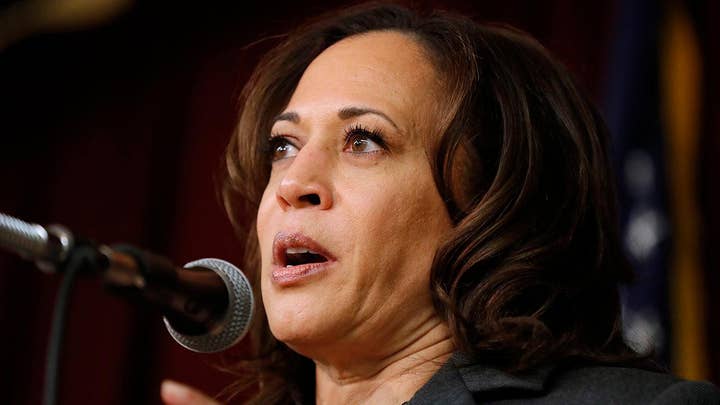Beto O'Rourke: Let's abolish the Electoral College
The Electoral College is one of the 'bad compromises' that the nation's founders made on 'day one,' Democratic presidential candidate Beto O'Rourke says at the We The People summit.
Democratic presidential candidate Beto O’Rourke appeared Wednesday to back off his initial opposition to slavery reparations, saying he would support a bill in Congress to study and consider the payments.
The former three-term congressman from Texas made his comments during an appearance in New York before the National Action Network, a civil rights organization founded by Al Sharpton.
Asked by Sharpton if he would back a measure introduced by Democratic Rep. Sheila Jackson Lee, a fellow Texan, O’Rourke answered, “absolutely I would sign that into law.”
The comments by O’Rourke represent an apparent shift on the issue for the White House contender.
Campaigning in Iowa last month, O’Rourke indicated he was not in favor of traditional reparations but stressed that it was crucial for the nation to confront the truth of how black people have been treated in America and that systematic racism exists in the country.
And a few days later, campaigning in New Hampshire, O’Rourke said: “I don’t believe… that [reparations] should be the primary or initial focus of the conversation."
REPARATIONS BECOMING LITMUS TEST FOR 2020 DEMOCRATS
The idea of slavery reparations for black Americans is at least partially backed by five Democratic presidential candidates so far – Sens. Kamala Harris of California and Elizabeth Warren of Massachusetts, former San Antonio Mayor Julian Castro, who served as housing secretary under President Barack Obama, businessman and entrepreneur Andrew Yang, and Rep. Tulsi Gabbard of Hawaii, who has co-sponsored Jackson Lee’s bill.
“I think we need to bring about reparations. It’s really a question of what is the right way and how,” Gabbard told Fox News last month.
The push by some Democratic White House hopefuls points to the further importance of race and identity issues within the party. While supporters say reparations are needed to address slavery and other racist aspects of American history, critics say such a move could cost several trillion dollars without solving racism.
Jackson Lee, introducing her bill in January, highlighted that “the impact of slavery and its vestiges continues to affect African Americans and indeed all Americans in communities throughout our nation.”
She explained that the measure – formally known as the ‘Commission to Study and Develop Reparations Proposals for African Americans Act’ – would examine the “institution of slavery in the colonies and the United States from 1619 to the present, and further recommend appropriate remedies.”
The bill currently has more than 30 co-sponsors in the House of Representatives and, last month, House Speaker Nancy Pelosi said she would support the legislation.














































